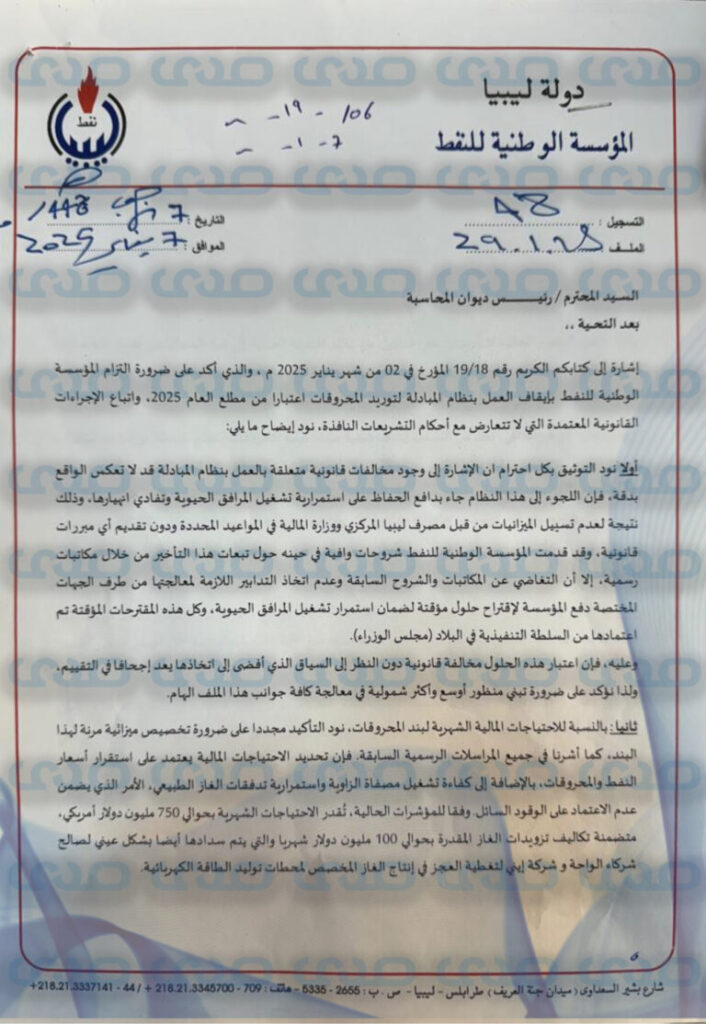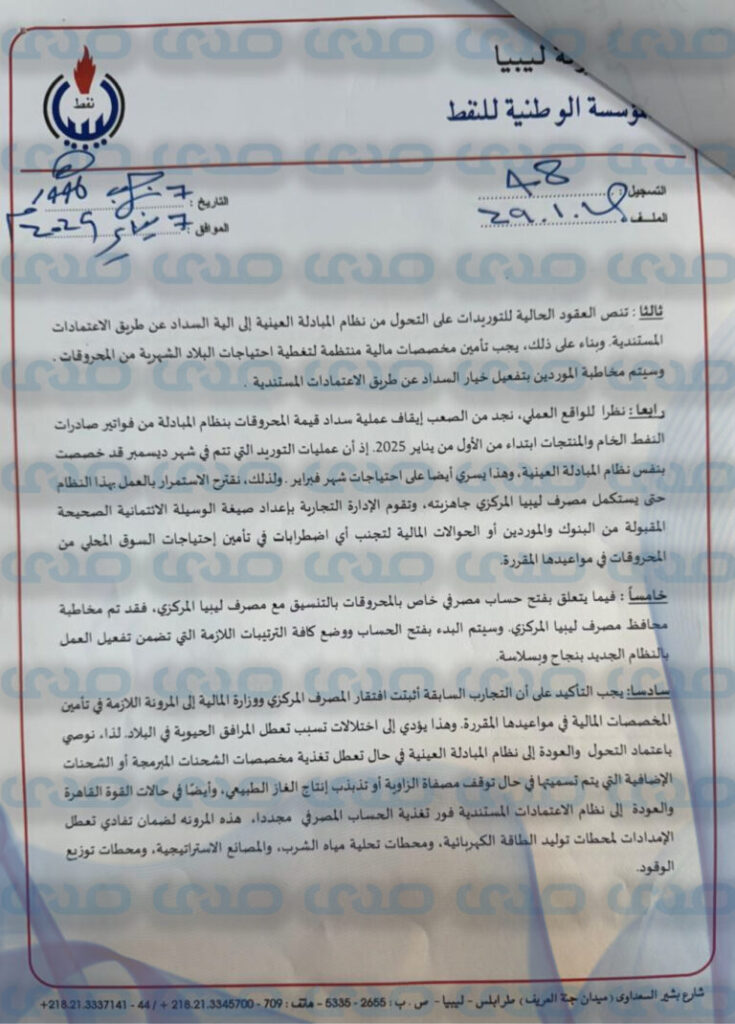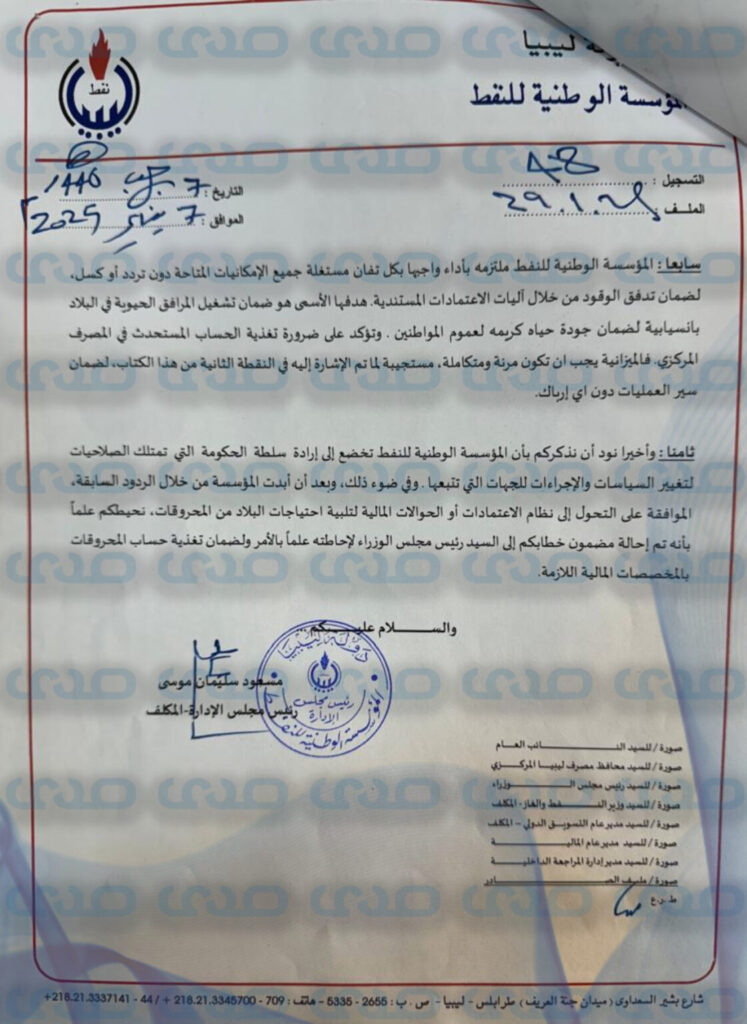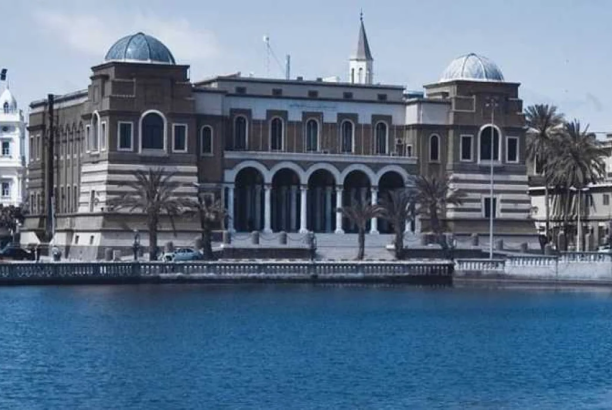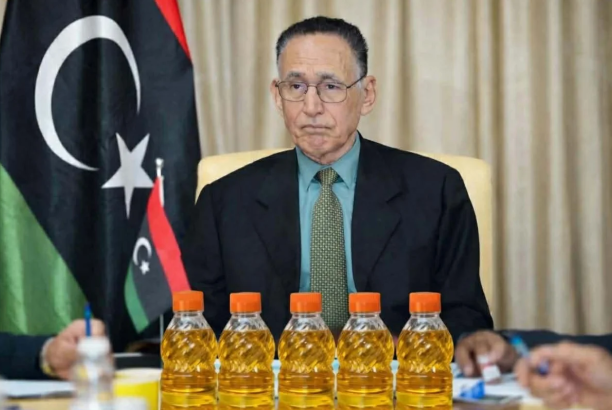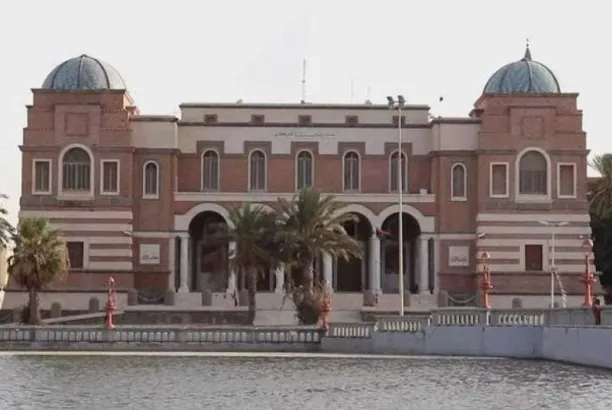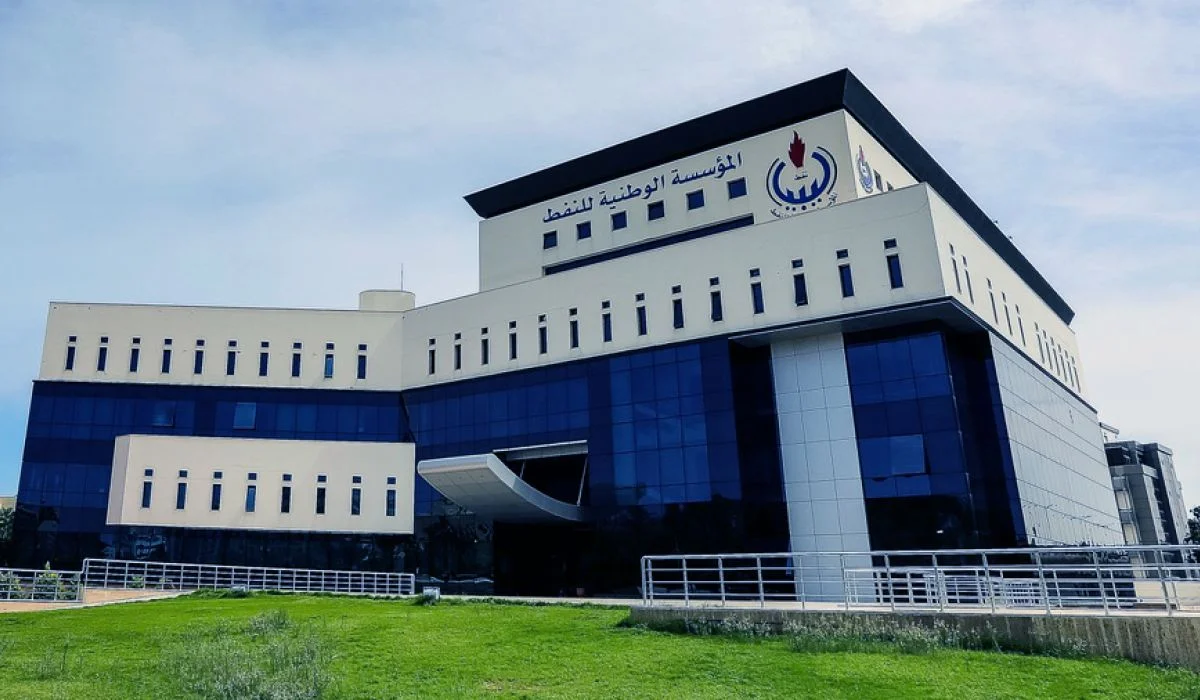
| News
Demanding a Budget of $750 Million: The National Oil Corporation Responds to the Audit Bureau’s Request to Halt the Fuel Barter System Starting in 2025
Our source has exclusively obtained correspondence from the National Oil Corporation (NOC) addressed to the Chairman of the Libyan Audit Bureau. In this correspondence, the NOC responded to the Audit Bureau’s request to stop using the fuel barter system beginning in 2025, explaining the difficulties in ceasing this system.
The NOC stated that references to alleged legal violations related to the barter system may not accurately reflect reality. The resort to this system was driven by the need to ensure the continuous operation of critical facilities and avoid their collapse. This situation arose due to the failure of the Central Bank of Libya and the Ministry of Finance to release budgets on time without providing any legal justifications. The NOC had previously provided detailed explanations regarding the consequences of these delays through official correspondence. However, the disregard of these communications and the lack of necessary measures by the relevant authorities forced the NOC to propose temporary solutions to guarantee the continuity of essential facilities. All these temporary proposals were approved by the country’s executive authority (the Council of Ministers).
The NOC continued by stating that deeming these solutions illegal without considering the context that led to their adoption is an unfair assessment. Therefore, it emphasized the importance of adopting a broader and more comprehensive perspective in addressing all aspects of this critical issue.
Regarding the monthly financial requirements for fuel, the NOC stressed the need for a flexible budget for this category. As mentioned in all previous official correspondences, determining financial needs depends on the stability of oil and fuel prices, as well as the efficiency of operations at the Zawiya Refinery and the continuous flow of natural gas. This ensures reliance on liquid fuel is avoided. According to current indicators, monthly requirements are estimated at approximately $750 million, including gas supply costs of about $100 million per month, which are also settled in kind for Waha partners and Eni to cover the shortfall in gas production designated for power plants.
The NOC explained that current supply contracts aim to transition from the barter system to payment via letters of credit. Therefore, it is crucial to secure regular financial allocations to meet the country’s monthly fuel needs. Suppliers will be notified to activate the payment option through letters of credit. However, given the practical realities, it is difficult to stop the payment for fuel through the barter system from crude oil and product export invoices starting January 1, 2025. For example, the December supply operations are allocated under the same barter system, and this also applies to the needs for February.
The NOC proposed continuing with the barter system until the Central Bank of Libya achieves readiness and the commercial management prepares the appropriate credit mechanism acceptable to banks and suppliers. This would prevent any disruptions in securing local market fuel needs on schedule.
The NOC added that regarding the opening of a special bank account for fuel in coordination with the Central Bank of Libya, the bank governor has been addressed, and the account will be opened with all necessary arrangements to ensure the successful and smooth implementation of the new system. It emphasized that previous experiences have proven the Central Bank and Ministry of Finance lack the required flexibility in securing financial allocations on time, which leads to disruptions that halt critical facilities in the country.
The NOC also recommended reverting to the barter system if scheduled shipments or additional shipments are disrupted due to the shutdown of the Zawiya Refinery, fluctuating natural gas production, or force majeure events. The NOC suggested returning to letters of credit once the bank account is replenished. This flexibility is necessary to avoid interruptions in the supply of electricity generation stations, water desalination plants, strategic factories, and fuel distribution stations.
